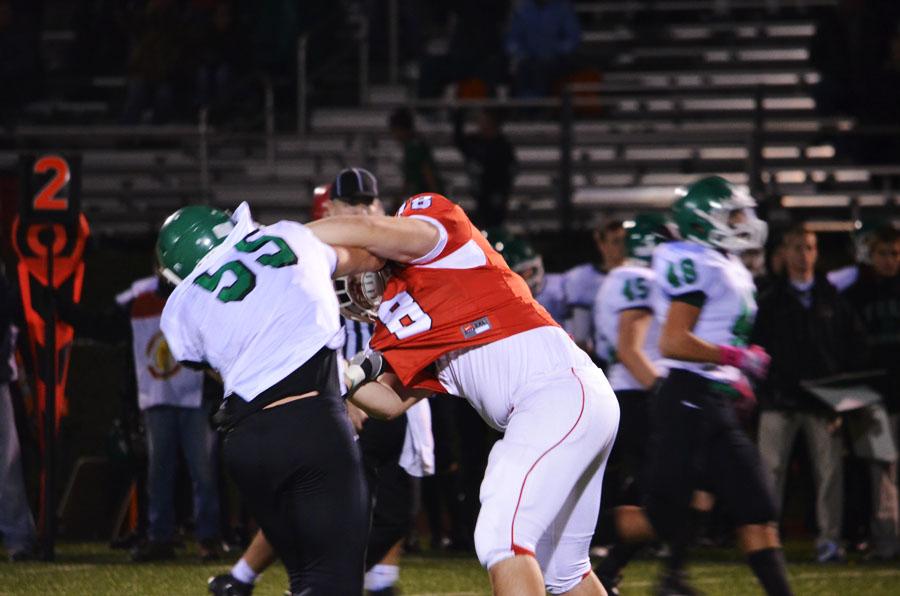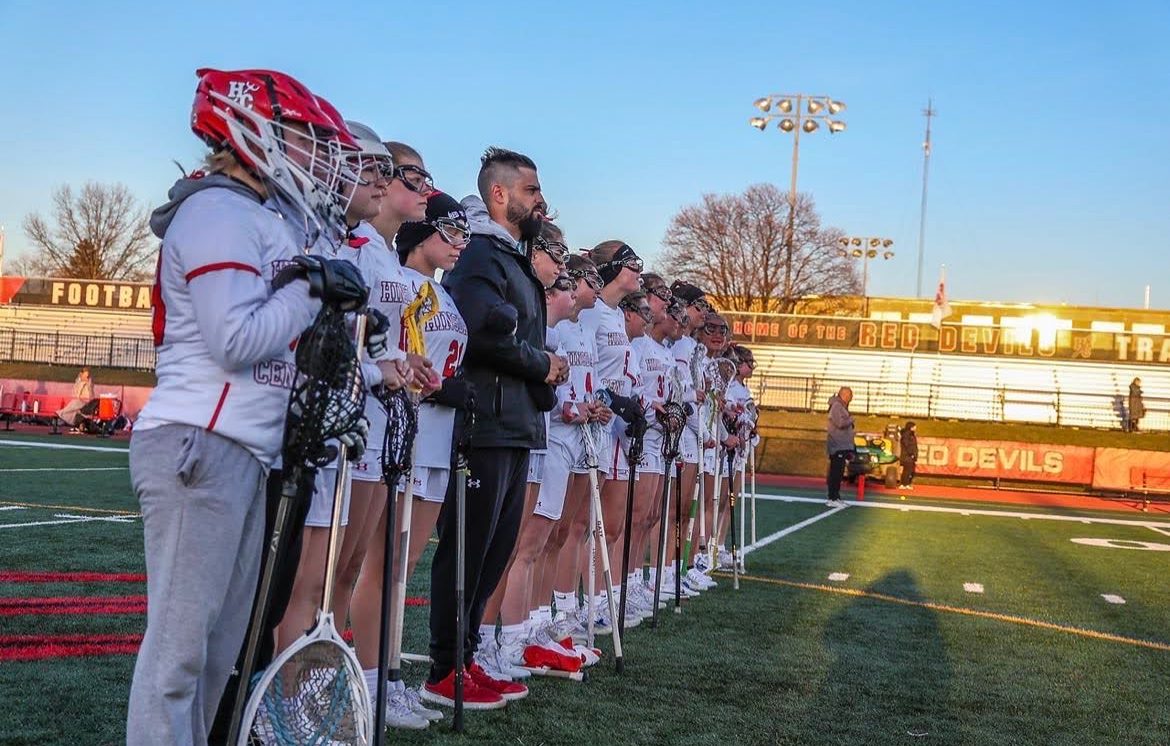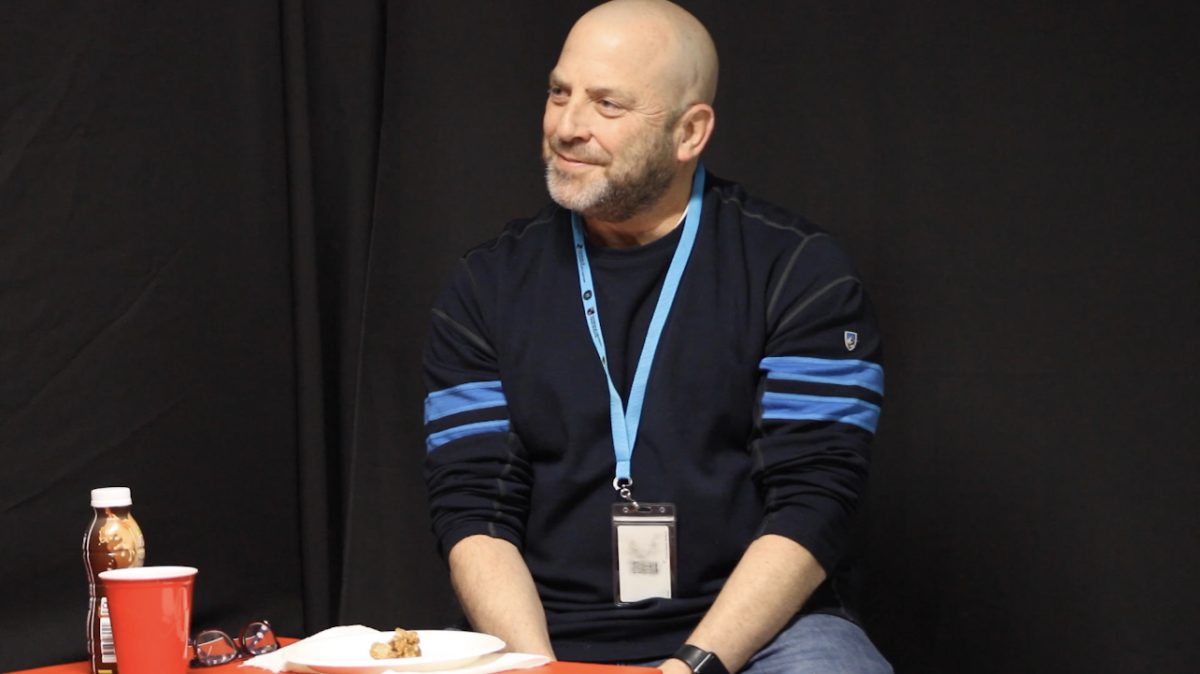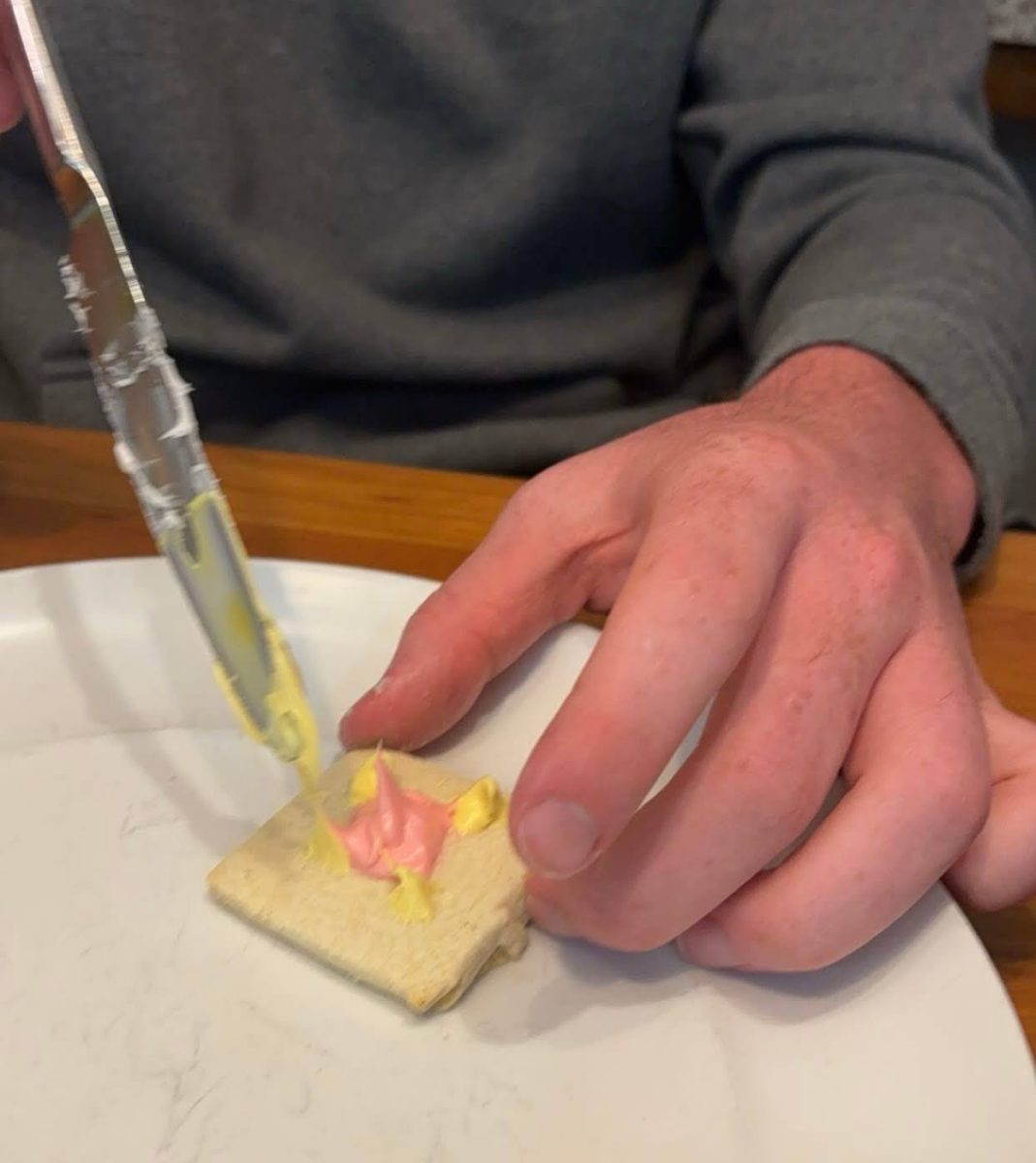The lights shine down on the field spotlighting players. Noises jumble together while the quarterback yells out plays and the coaches call last-minute changes. The fans in the bleachers shout, the cheerleaders cheer, and all that intensity comes down to one moment. The moment when the ball goes into play. The player hears one thing….his own heartbeat and his panting breath. His focus is not the din of the crowd, but the player he’s facing, whose breath he sees in the cold night air. He knows he’s going to do whatever he has to in order to get a win, and that means one thing: playing tough.
Competiton and sports are basically one in the same, and that is true in high school sports as well. Healthy competition can go a long way in developing good, strong athletes who want to win, but some competition can cross the line where players’ emotions get in the way of making good decisions for themselves and the team. Players and coaches both are aware of the pitfalls of intense competition.
“I think when competition becomes malicious or intentional it can be a problem. Oftentimes sports are physical and there’s a difference between physicality and intent to hurt someone,” said Martin Bell, boys water polo coach. This includes intentional physical and verbal damage (like racial slurs).
“I don’t mind the smack talk because that is just a part of the game, but when people are [physically] going for your head I think it’s over the line,” said Nick Piker, senior football player.
Athletic Director Mr. Daniel Jones concedes that sports can amount to high intensity. “The thing about football and some other contact sports is that it’s very emotional. So, it is important that the athletes know to be able to control their emotions and to stay within the game and to stay within the rules and the expectations,” Jones said.
Athletes agree with Jones, but admit it’s easier said than done. “I play offensive line so that is where all the dirty stuff takes place. People frequently grab our facemasks, bend them, shake them. Also, sometimes if there is a pile on the ground, there is some punching or kicking going on,” Piker said. The players must respond appropriately according to the game rules and on the basis of sportsmanship.
Situations happen, however, when foul play overrides sportsmanship. “There are times that [athletes] break rules because they are human, and rules are broken on a regular basis. I think for the most part they try not to, but they know that there are consequences,” Bell said.
If the coaches and referees do not see a certain situation, Jones thinks the players should take responsibility for their actions and the actions of their teammates. “Teammates should step in, and sometimes that has more impact than the coaches do. Having your captain or one of your leaders or even just one of your teammates say, ‘Hey knock it off, that’s enough, get back in the huddle’ means a lot. You see that not only at the high school level, but you also see it at the pro level.”
As for Central’s football team, “[the players] all get pretty into the moment and Brian Owens, being the quarterback, calms people down and has constant control of the huddle. Also, everyone on the team looks out for each other so everyone tries to calm down the situation if there is one,” Piker said.
In addition to players looking out for each other, coaches also play a role in managing intensity. “I pull [players] when they just start to get hot-headed because I know my players well enough—I know when they’re getting really heated,” Bell said.
When an infraction of sportsmanlike conduct does slip by, many coaches respond with a consequence to reinforce the team’s standards. “At practice, anything from a physical thing to swimming extra laps, doing butterfly, doing push-ups, to more of an astringent where they actually have to sit out the practice” Bell said. Other times, he sits the players out of games.
With morals and consequences to deter unsportsmanlike actions, Jones has not noticed a big problem with athletes’ behavior. “I’ve been to a lot of events so far this fall; I’ve been very impressed by the way our students handle themselves and compete. I’m very proud of the way our coaches get our kids ready,” Jones said.
Even for sports with referees to manage the players, there do not seem to be any major issues. “Most guys know all of the rules because they have been playing football for so long, and we all follow them for the most part” said Teddy Kwasigroch, senior football player. When they do foul, athletes recognize the mistake and submit to proper consequences.
“When other teams start playing dirty, I tend to play less dirty just to prove a point: that we can beat them with skill, not by resorting to throwing blows underwater,” said Brogan O’Doherty, senior water polo player.
If he were to notice an issue, Jones would take action to stop it. “As of right now, if I was to see that we have a rash of incidents—and I’m taking this completely out of context—the first thing I do is go to the coaches and find out what they’re doing about it. If I still see it after I’ve talked to the coach, then I address it to the team, and then it’s something I’d meet with the coach about after the season, saying ‘Hey I asked you to handle it, we didn’t handle it,’ [and] come up with a plan,” Jones said. He would also consider amending the athletic code to cover sportsmanship guidelines, although he does not find it at all necessary now.















